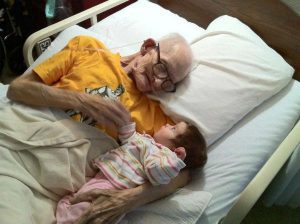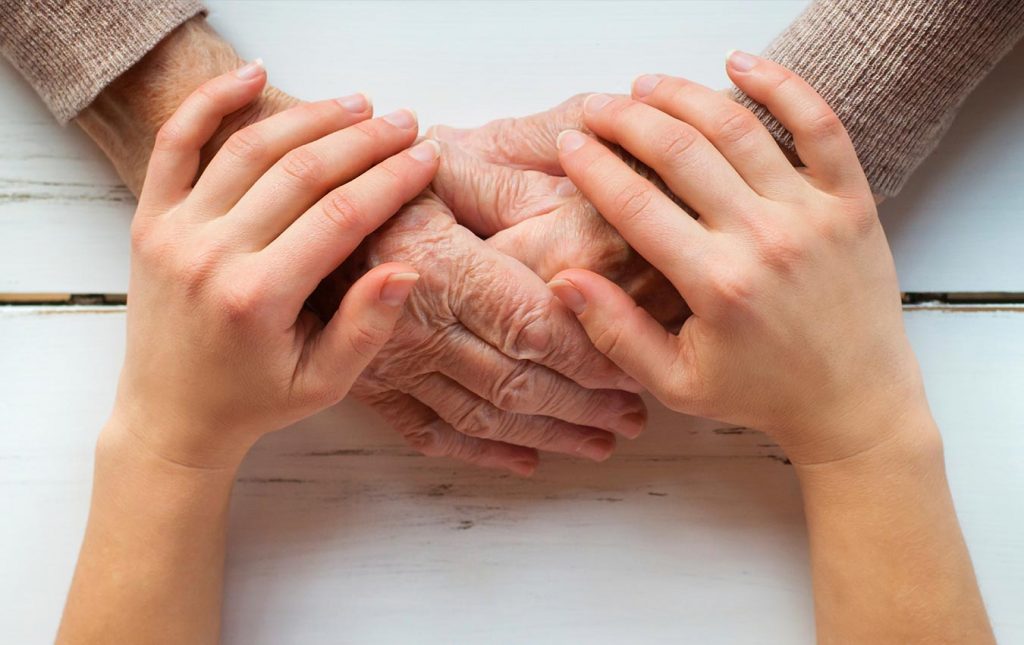By His Grace and Blessings, I write
Finitude of Cancer Treatment: The Hard Choices
If you are above 40 years of age, you probably might recollect some sad memories of some relative/family member/friend or a loved one suffering from some terminal disease like cancer and who breathed his last at home. Nowadays, however, most terminally sick patients are likely to die in a hospital/nursing facility environment away from home and their loved ones. What has changed during last 40/50 years is that most of the people suffering from terminal stages of diseases like cancer are highly likely to spend the last days of their lives in a painful, semi -conscious states, on ventilators and with sore backs in a nursing or medical facility and away from warmth of their homes. The doctors would have offered no hope or guidance or comfort but only one failing treatments after another. All this change is a gift of modern medical-health-corporate complex which offers to heal us but leaves us in lurch when we need comfort and compassion or when expenses become unbearable. This series of blogs will try to address hard questions surrounding death and choices available to a terminally sick person.
Leo Tolstoy in his novel “The Death of Ivan Ilyich” tells the story of a high court judge in 19th century Russia and his sufferings and death from a terminal illness. What tormented Ivan, writes Tolstoy, “was the deception, the lie, which for some reason they all accepted, that he was not dying, but was simply ill, and he only need to keep quiet and undergo a treatment and then something very good would result”.
The modern healthcare industry and its ill trained soldiers seem to be more primitive then those who treated Ivan in the 19th century. The medical today is inadequately prepared to handle the matters of death and aging. The large scale medical-industrial complex with its shameful commercialisation has made it impossible for a patient of terminal illness to peacefully die at home with his sanity and dignity intact. The emphasis on doctor knows the best model, the concentration on repair of body rather then sustenance of soul, the absence of pain management, the blatant prevalence of corruption in healthcare etc have all rendered the modern healthcare models inadequate to deal with the questions of When to die?, Where to die?, and How to die ?. Moreover, the absence of any view in modern medicine regarding what makes life significant, worthy and purposeful also highlights the inadequacies of healthcare Industry to deal with the questions of mortality and finitude of human lives.
Mortality and finitude of our lives are the questions that confront us all. It needs to be understood that death is not a failure but a natural order of things. All civilisations have historically accepted death as a natural corollary to aging and have devised suitable mechanisms to deal with it. However, in past few decades, medical science has rendered obsolete centuries of experience, tradition and has made death a very painful and long drawn process leaving behind in its trail deep social, psychological, physical and financial scars for the patient and his family members.
Experience of all of us with modern health-care industry will prove that patients are invariably subjected to futile curative treatments and enduring enormous physical, emotional, and financial suffering. The person in patient is often forgotten in the maze of hospital corridors, imaging rooms, and ICUs.
A study led by Sociologist Nicholas Christakis found that in case of terminally ill patients, doctors had a very poor estimate of the patient’s survival time and estimated it 530% higher in 63% of the cases. More than 40% of the Oncologists admitted to offering treatments that are unlikely to work and didn’t give a specific prognosis to their terminally sick patients. In another study, it was seen that 2/3rd of the terminally patients would not have undergone many of these futile treatments, if they had a say and if, their family members hadn’t pressurised them.

In view of the above deficiencies of healthcare industry, a novel approach is being adopted under the aegis of WHO. It is called Palliative care or Hospice care and has been found to be very effective in reducing the pain, the emotional and financial stress of the patient and his family members. It utilises social capital to address the needs of terminally sick patients. The idea in this kind of care is not to treat the disease but the symptoms of the disease like acute pain and emotional distress and disconnect which torment the patient in the last days of his life. It aims to help patient spend his last days with dignity and quality, surrounded by his loved ones at his home. It reconciles the thought process of the patient with inevitability of death and with the Zen sayings,” You live longer only when you stop trying to live longer”…
My next blog will discuss in detail the concept and benefits of Palliative Care..
With His Grace and Blessings, I write…
Dr.Seema Chaudhary


5 Responses
Ma’am
Very good article.
Would like to know more about palliative care.
Best wishes.
Thanks Mane Ji…i ahve uploaded another article on Palliative care today .i.e. Friday . Kindly read the same and offer your valuable insights for further improvements ..thanks a lot..
बहुत सूंदर,एवं ज्ञानवर्धक आलेख, दिली मुबारकबद,
किसी शायर ने खूब कहा है ,
मेरी कोशिश को सराहो, मेरे हमराह चलो,
मेने एक शम्मा जलाई है इन हवाओँ के खिलाफ।
यह पंकितया आप पर सटीक बैठती है,
हमेशा लिखा कीजिये।
Like!! Really appreciate you sharing this blog post.Really thank you! Keep writing.
thanks Sir/ Madam for your kind appreciation..please keep sharing your immensely valuable insights into these matters..thanks